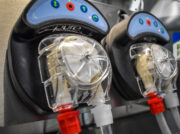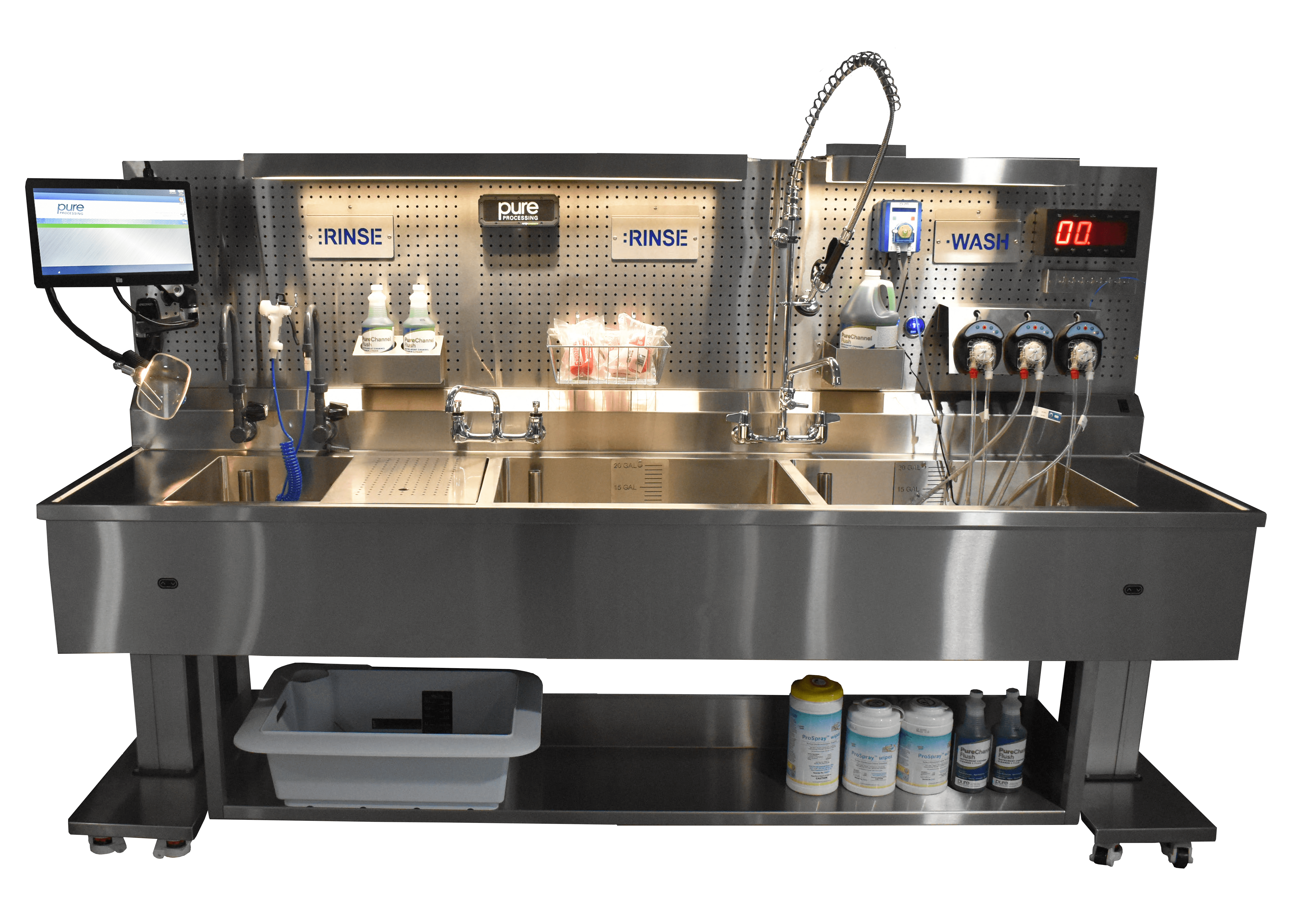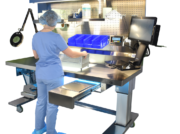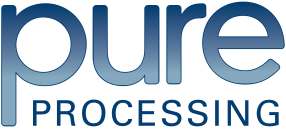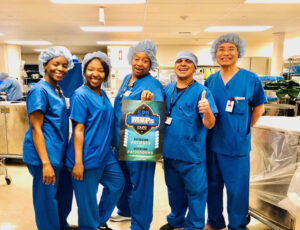
Central sterile education & training are key to reducing HAIs
For decades, reusable medical devices have been the culprit of healthcare-associated infections (HAIs). Each day, approximately 1 in 31 U.S. patients has at least one infection in association with his or her hospital care,1 underscoring the need for improvements in patient care practices in U.S. healthcare facilities.
Sterile processing departments play a crucial role in patient safety outcomes. The risk of infection and death increases dramatically if instruments are not thoroughly cleaned and sterilized. In addition to understanding the patient safety element of sterile processing, technicians are also required to understand every inch of a surgical instrument to thoroughly clean and sterilize the device for use on the next patient.
Properly trained sterile processing technicians are critical
Better patient care begins with properly trained sterile processing technicians. Technicians require the most up-to-date information to properly do their jobs.
As medical procedures evolve, so do technology and instrumentation. Keeping up to date with reusable medical devices advancements requires continuous knowledge. Risks increase without the latest industry standards and manufacturer instructions for use (IFU). The safety risk to staff and patients cannot be understated.
According to the United States Bureau of Labor Statistics, there are 50,550 instrument specialist technicians, with job growth expected to increase 20% by 2022.2 That means there are 50,550 different ways an instrument could be cleaned. Inconsistent cleaning practices can be avoided, and patient outcomes can be improved by providing training and education on best practices, national standards, and manufacturer IFU. These must become a mandatory part of every sterile processing department’s quality protocols.
Consistent sterile processing training improves outcomes
Departmental best practices can be improved by consistently providing training and in-service opportunities to staff. This helps avoid medical device reprocessing issues such as dirty instruments that can lead to HAIs.
Sterile processing products such as sterilizers, automated flushing pumps, inspection technology and more are constantly evolving to improve processes and effectively clean and sterilize instruments. Best practices are followed more consistently, and technicians are more confident in the ability to perform their duties when they are properly trained.
Providing ongoing education and certification opportunities to all staff is another way a department can improve not only patient safety but staff safety as well. Educational offerings come in a variety of options, but we will focus on two of the most common: Continuing Education and Certification.
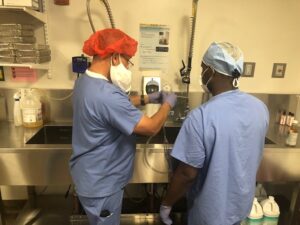
Sterile processing continuing education
Continuing Education (CE) programs offered by facilities, associations, and vendors provide departments with the opportunity to keep up to date with:
- The latest industry trends
- Standards and regulations
- Recommended practices
- Manufacturer IFU
Vendors and industry associations are a great resource when it comes to obtaining CE credits. This year has also seen an increase in virtual opportunities to easily receive CEs. Social media platforms like Facebook and LinkedIn have many sterile processing professional groups where CE resources are shared. Vendors and industry associations such as HSPA, AST, AORN, SGNA and others also have resources on their website in which to find CE opportunities.
Sterile processing certification
Professional certification requires technicians and staff to take educational courses and exams to assure they have met competency-based standards to perform their jobs. Certification opportunities abound through HSPA, CBSPD, community and junior colleges, and other outlets.
Several states understand the importance of the critical tasks that sterile processing technicians are faced with and now require sterile processing technicians to become certified. To become a sterile processing technician in Connecticut, New Jersey, New York and Tennessee, you must be certified. Certification requires technicians to take courses in order to pass a certification exam. Certification ensures departments are performing their duties through high standards.
CBSPD offers the following certifications:
- Certified Sterile Processing and Distribution Technician (CSPDT)
- Certified Ambulatory Surgery Sterile Processing Technician (CASSPT)
- Management in Sterile Processing (CSPM)
- Flexible Endoscope Reprocessors (CFER)
- Certified Surgical Instrument Specialist (CSIS)
HSPA offers the following certifications:
- CRCST – Certified Registered Central Service Technician
- CIS – Certified Instrument Specialist
- CER – Certified Endoscope Reprocessor
- CHL – Certified Healthcare Leader
- CCSVP – Certified Central Service Vendor Partner
In addition to enhancing patient and staff safety, sterile processing training, education, and certification opportunities provide an outlet to network with other professionals to learn from each other.
Establish a continuous sterile processing training methodology in your department for future growth and adherence to best practices. Now is the time to support your technicians with additional learning opportunities to strengthen the team and improve patient outcomes. Those are the keys to reducing HAIs!
Earn CE credits and certification through Pure Processing! Visit our Educational Resources page for more details. Follow us on Facebook and LinkedIn for more educational content.
References:
- Centers for Disease Control and Prevention (2018). 2018 national and state healthcare-associated infections progress report. Accessed on October 12, 2020. https://www.cdc.gov/hai/data/portal/progress-report.html
- Gooch, K (2015). 15 facts, statistics on central sterile departments and technicians. Beckers Hospital Review. Accessed on October 12, 2020. https://www.beckershospitalreview.com/hr/15-facts-and-statistics-on-central-sterile-departments-and-technicians.html
